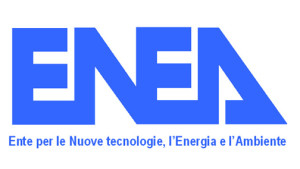
L’utilizzo delle biomasse per il riscaldamento residenziale non porta i benefici sperati e anzi, a causa delle emissioni di particolato (PM 2.5), incrementa l’inquinamento atmosferico e provoca danni alla salute. Per questo motivo, le politiche di sostegno alle biomasse per uso residenziale vanno condizionate all’uso delle più efficienti tecnologie disponibili, gli standard emissivi delle tecnologie incentivabili devono diventare più rigorosi e le politiche di incentivi vanno rimodulate tenendo conto degli impatti negativi sulla salute provocati dalle emissioni di inquinanti atmosferici come il particolato.
E’ quanto emerge dallo studio Enea “Gli impatti energetici e ambientali dei combustibili nel settore residenziale”, presentato l’11 novembre in un evento promosso a Roma da Assogasliquidi e Anigas. Gli aspetti sanitari sono stati evidenziati dallo Studio del Centro Controllo Malattie del Ministero della Salute, VIIAS (Valutazione Integrata dell’Impatto dell’Inquinamento atmosferico sull’Ambiente e sulla Salute). Lo Studio ENEA parte da recenti analisi sulla qualità dell’aria che, in alcune zone del Paese, evidenziano una presenza di inquinanti atmosferici e composti tossici elevata, nonostante l’adozione di norme europee sulle emissioni di impianti industriali e autoveicoli. Inoltre, a differenza degli altri prodotti petroliferi, del gas naturale e dell’energia elettrica – soggetti ad accise o imposte di fabbricazione e all’aliquota Iva al 22% – le biomasse godono di una fiscalità agevolata.
Tale trattamento preferenziale accordato alle biomasse dovrebbe quindi esser riequilibrato, per tener conto degli impatti negativi sulla salute umana e sull’ambiente. I dati presentati anche dalle ARPA regionali intervenute all’evento e da INSERM (Institut National de la Santè et de la Recherche Mèdicale) confermano gli impatti ambientali e sanitari derivanti dall’impiego delle biomasse nel settore del riscaldamento.
European and Italian energy policies pursue several objectives including energy dependence reduction, greater energy efficiency and climate change mitigation.
The EU “20-20-20 Package” in 2009 set objectives for 2020. As a result:
- Directive EC/2009/28 on renewables transposed in the Italian legislation.
- National Action Plans for Renewable energies (PAN) and Energy Efficiency (PAEE).
- Elaboration of specific policy measures in support of renewables.
The 2013 National Energy Strategy for 2020 identifies renewable energy sources (RES) among the main priorities for action, setting for the power sector more ambitious targets than those set in the PAN and promoting thermal renewables.
- Cover with RES a 19-20% share of gross final energy consumption by 2020.
- Part of this contribution could be provided by thermal renewables (about 11 Mtoe/yr) including, besides solar thermal and heat pumps, a portion supplied by biomass as a fuel for boilers, closed fireplaces and stoves.
In home heating, the replacement of fossil fuels with biomass (conventionally considered as carbon neutral) is encouraged.
In Italy we use much more biomass in home heating than previously thought.
- A survey by ISTAT on Households energy consumption (2014), estimates the amount of biomass used in the residential sector in 2013 at about 19 Mt (of which 17.5 Mt consisting of wood and 1.5 Mt of pellets). About half of the wood use is unrecorded as it escapes market transactions.
A more favorable fiscal treatment is accorded to wood biomass and pellets. - Atmospheric pollutants concentrations (including PM) are still too high in some areas of Italy, despite the adoption of fairly stringent European and national regulations on emissions from industrial plants and vehicles.
- The impact of air pollutants concentrations on the diffusion of respiratory diseases in humans is recognized by several epidemiological surveys and studies conducted worldwide by the WHO.
- The VIIAS study estimates about 30 000 premature deaths in Italy to be due solely to fine particulate (PM2.5).









